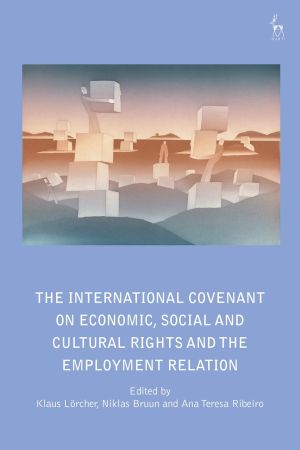
This book is the first comprehensive treatment of the International Covenant on Economic, Social and Cultural Rights (ICESCR) and employment rights.
Workers' rights need protection and reinforcement. To achieve this aim, international standards can play an important role. The ICESCR is the most important global UN instrument in this respect. It covers a wide range of employment rights, including the right to strike, and has global application. But it is not sufficiently used, and national implementation often needs improvement.
Part 1 analyses the main transversal questions, including substantive issues, such as context, development, influences at global and regional level, interpretation, and all procedural elements. Part 2 deals with the specific provisions which are directly linked to the employment relation. Together, the chapters in this book empower the user to find answers to relevant and practical problems.
The book is an essential resource for academics and practitioners in labour law who are using international law instruments to enforce and improve workers' rights.